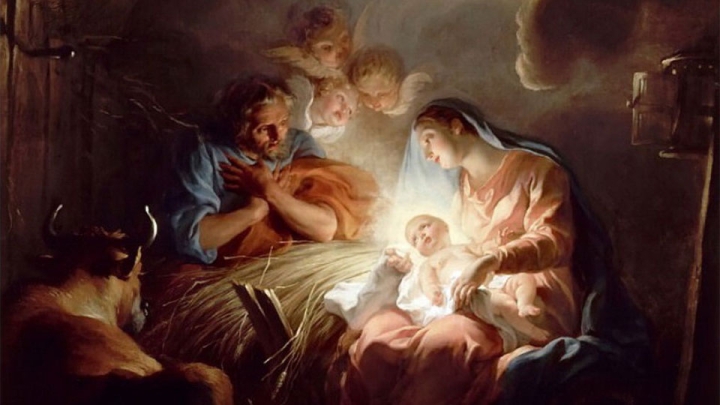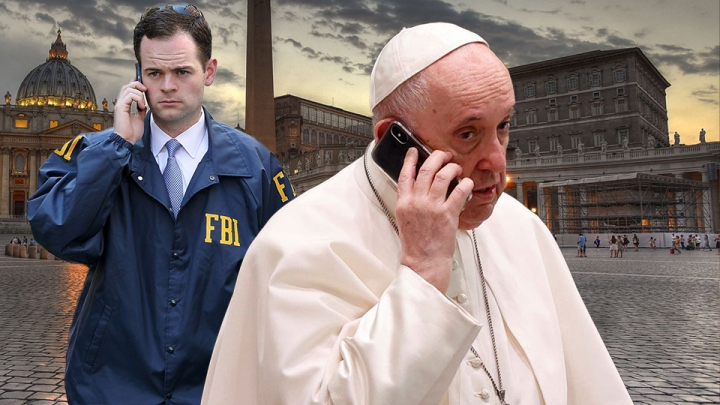Remnant Articles
A Christmas Truce at the World War I Front
Editor’s Note: This article was published in The Remnant in 2006 after having first appeared on the Your Guide to 20th Century History website. It is reproduced here with the permission of the author. The original song by John McCutcheon, also posted below, is well worth listening to as you read this incredible story from a moment (and an innocence) not so very long ago, the memory of which is fading from the consciousness of "enlightened" men who've lost sight of God, Country, and certainly the true meaning of Christmas. We repost this article every Christmas as yet another means of keeping the old stories (and thus the old reality) alive until saner men return. The true meaning of Christmas broke through the fog of war in 1917 and it will do so again this year, so long as we keep telling the stories. Merry Christmas to all, and to Hell with the New World Order. MJM
Christmas in the Trenches, the True Story
By: Jennifer Rosenberg | Guest ColumnistIn the midst of the darkest moment in the history of the church, when the “abomination of desolation” (Matthew 24:15) reigns in the place that is holy, it is vital to remember the essential. The learned Origen of Alexandria (c.185–c.253) is the one who tells us what to do in such a situation: “let those who see this flee from the Judæa of the letter to the high mountains of truth.” So, faced with an unprecedented spread of both doctrinal and practical heresies, it is absolutely necessary to ascend to “the high mountains of Truth.” Not just any truth, but that divine, revealed Truth that teaches us how to return to the Paradise lost by Adam and Eve through original sin. Thus, preparing our minds through prayer and humble reflection to receive the light that emanates from the Holy Scriptures, we strive to delve into the meanings of an event that decisively influenced the history of the world. The verse that initiates such meditation is found in the Gospel of the Holy Apostle John (chapter 3, verse 13):
“And no man hath ascended into heaven, but he that descended from heaven, the Son of man who is in heaven.”
Descending from Heaven: Thoughts on the Mysterious Meanings of Christmas
By: Robert Lazu Kmita | Remnant Columnist, RomaniaAs a strong and steady backlash to the Vatican’s declaration on blessings for same-sex couples continues to flow in from Catholic Bishops around the world, Bishop Athanasius Schneider is referring to the document as “a mockery of the natural and revealed law of God.”
Bishop Schneider on Fiducia Supplicans: “A Mockery of the Natural and Revealed Law of God”
By: Diane MontagnaIf there is one historical figure more than any other who most immediately and prominently prepared the way of the Lord, it was John the Baptist. This was the same John who was cleansed of original sin and leapt for joy in the womb of his mother when first encountering the Christ Child in the womb of Mary. Some thirty years later, John emerged from the desert, offering a baptism of repentance to the faithful.
In his 1936 book studying the human character of Christ, In the Likeness of Christ, Fr. Edward Leen described the way in which the cave of Bethlehem shows us the “paradox of Christianity.” He began with a picture of the inhospitable cave in which the Divine Infant was born:
“The cave of Bethlehem is an exact presentation of the paradox of Christianity. It is austere and forbidding. Even in the daylight and under the bright sun the cavern would look miserable and uninviting. In the darkness it is positively repellant. The glimmer shed by Joseph’s lantern was not strong enough to shed a cheerful light; it served but to reveal and bring out into relief every harsh and rude feature. The sides dripped with moisture and showed bare and jagged. Through openings in them, here and there, the wind moaned dismally. The strong draughts increased the natural chilliness of the place. The floor was uneven and covered with straw that had been trampled to filth by the animals. What was in the rude manger, though clean, was coarse and prickly; it scarcely tempered the hardness of the few planks for the Infant limbs. The dripping of the water and the sounds of the animals as they stirred in their rest, falling on the ear, intensified the general feeling of comfortlessness.” (p. 51)
Rediscovering the Cave of Bethlehem and the Paradox of Christianity
By: Robert Morrison | Remnant ColumnistIn the December 18, 2023 document approved by Francis, Fiducia Supplicans, the Dicastery for the Doctrine of the Faith approved the blessing of same-sex unions. The dicastery’s prefect, Cardinal Víctor Manuel "Tucho" Fernández, described the document as follows:
“As with the Holy Father’s above-mentioned response to the Dubia of two Cardinals, this Declaration remains firm on the traditional doctrine of the Church about marriage, not allowing any type of liturgical rite or blessing similar to a liturgical rite that can create confusion. The value of this document, however, is that it offers a specific and innovative contribution to the pastoral meaning of blessings, permitting a broadening and enrichment of the classical understanding of blessings, which is closely linked to a liturgical perspective. Such theological reflection, based on the pastoral vision of Pope Francis, implies a real development from what has been said about blessings in the Magisterium and the official texts of the Church. This explains why this text has taken on the typology of a ‘Declaration.’”
Francis’s Anti-Christmas Gift to the Globalists: Blessing Same-Sex Unions
By: Robert Morrison | Remnant ColumnistA few days ago, the head of the former Holy Office, Cardinal Victor Manuel Fernandez, went out of his way to let the world know that single mothers who repent and confess their sins should be allowed to receive Holy Communion. NEWSFLASH to Cardinal Victor: The Catholic Church has never said otherwise.
Normalizing Sodomy: The True Legacy of Francis
By: Michael J. Matt | EditorNew from Remnant TV...
In this edition of The Remnant Underground, Michael Matt wishes Francis a happy 87th birthday.
Francis is now the oldest reigning pope in 120 years, but some would ask: Is Francis pope, or antipope? Michael takes a deep dive into a new thesis, singed by by nine Italian Catholic intellectuals, which puts an end to that circular firing squad once and for all.
FRANCIS TURNS 87: Catholic World Divided Over Worst Pope in History
By: Michael J. Matt | EditorIn his 2016 conference dealing with the relations between the Society of St. Pius X and Rome, Bishop Bernard Fellay used the analogy of a poisoned soup to explain the SSPX’s objections to Vatican II:
“But the problem is not the good things that you can find in it, which actually exist. The problem is the bad things! If you put a drop of cyanide in the soup, what difference does it make if you add good vegetables, good stock, the best water that you can find; the soup is inedible because of the poison. That is what happens at the Council. That is why we say that the Council is inedible. Not because of the good things that you can find in it, but because of the poison.”
Divine Providence and the “Poisonous Soups” of Vatican II, Paul VI, and Francis
By: Robert Morrison | Remnant Columnist“Now, for any one to say that they believe in God—I doubt very much whether there is any one who really does believe, or understand what it means—but for any one even to say so is the very worst crime conceivable: it is high treason. But there is going to be no violence; it will all be quite quiet and merciful. Why, you have always approved of Euthanasia, as we all do. Well, it is that that will be used . . .” (Mr. Brand, from Monsignor Robert Hugh Benson’s Lord of the World)
Is the FBI Abetting the Globalist Hate Crimes Against Traditional Catholics?
By: Robert Morrison | Remnant ColumnistAs reported by Vatican Journalist Marco Tosatti, a group of nine Italian theologians recently published their so-called “Sedemenefreghismo Thesis,” named for the Italian term they invented:
“‘Sedemenefreghismo’ is an invented Italian word based on the word ‘sedevacantism’ which means ‘holding that the (Holy) See (sede) is vacant’ and ‘me ne frega,’ meaning, ‘I don’t care’, so that this invented word could be translated as ‘I don’t care at all whether the (Holy) See (is vacant or not).’”












